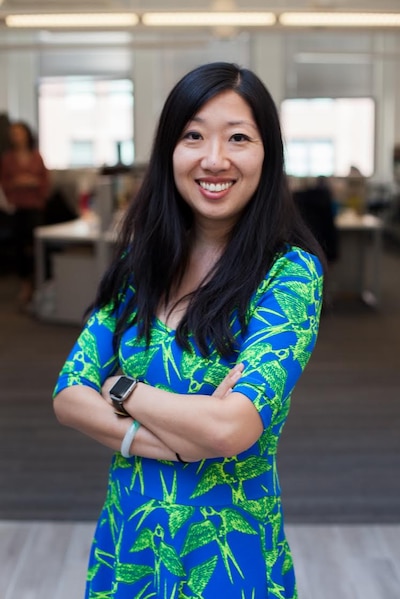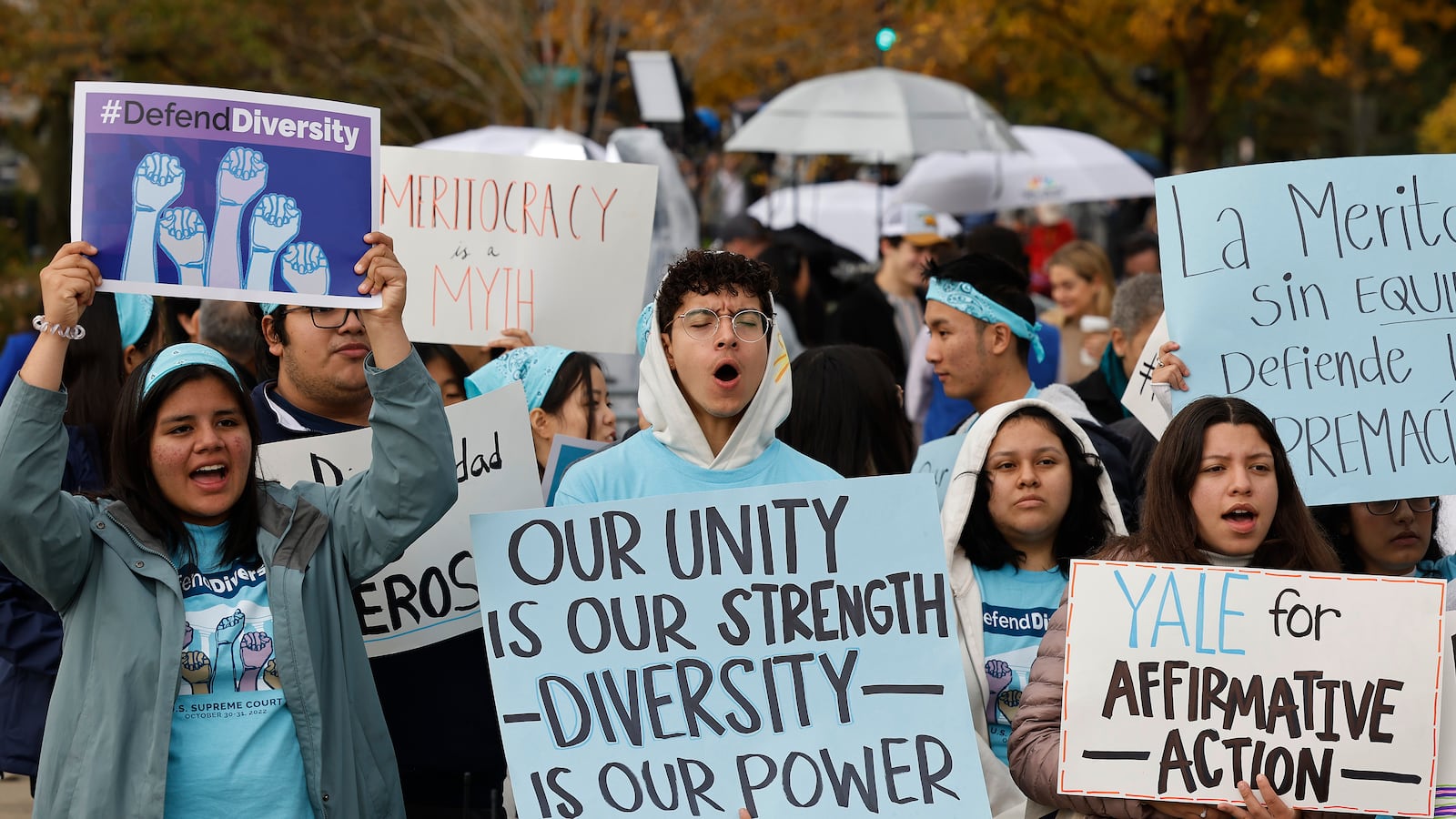Following today’s Supreme Court ruling striking down affirmative action at two of the nation’s top colleges, diversifying student bodies, correcting historical wrongs against communities of color, and advancing equity through college access will require new approaches.
I am a first-generation college graduate whose parents only advanced up to eighth grade. They were restaurant workers, moving our family from town to town across the southern states of Georgia, Alabama, and Mississippi, looking for opportunities. I graduated from a Mississippi public high school in 1999 and moved to Chicago to attend the University of Chicago. Without visiting the campus, I decided where to attend college based on which pathway would cost the least money and get me out of a small town where I felt like I didn’t belong.

I am also an Asian American woman. My mother heard a rumor that colleges discriminated against applicants of Asian descent and suggested I leave that off my application. I wanted to be evaluated by the merit of my application, so I followed her advice.
Race-based affirmative action, a policy aimed at increasing representation for students of color at colleges and universities, will leave a complex legacy. For all the good it has accomplished, it has also fueled a scarcity mindset, pitting communities of color against each other. I felt this as a young student applying to college.
In light of today’s Supreme Court ruling, which focused on admissions policies at Harvard and the University of North Carolina, it’s time to reimagine new ways to pursue equitable distribution of opportunity for all. Some institutions have already focused on new forms of diversity, such as socioeconomic status and geography. We need to do more to expand opportunities for students from the lowest income bracket, recognizing that these initiatives will lead to racial and socioeconomic diversity on our campuses.
According to The New York Times, the median family income of a student at Harvard is $168,000. Of all applicants accepted, 67% come from the top 20% for household income, and about 4.5% come from the bottom 20%. Lower-income students have very little representation. And for those low-income students who are admitted, a lack of preparedness can be an added challenge due to underinvestment in neighborhood public schools and other systemic issues.
My family came from that bottom 20%. My 55-year-old, widowed mother delayed her retirement and worked as a cashier making less than $250 a week to help me pay tuition. Like many students from low-income households, my family could not afford expensive test prep or avoid having me work while attending school. As a college freshman, I juggled work and classes while feeling academically underprepared and wondering if I had been admitted by mistake. Was I welcome here? Could I succeed?
Now, my work focuses on students facing similar challenges and doubts. At OneGoal, where we serve students from mostly low-income communities, students of color, and first-generation college students, high-quality postsecondary advising is key to our mission. We believe every student should have an equitable opportunity to get to and through college — be that community college or a highly selective institution.
Although only a few of the 15,000 or so students taking the OneGoal class around the country are applying to the most competitive colleges, where the Supreme Court ruling is likely to be felt most profoundly, the loss of affirmative action as we know it will have a chilling effect on overall enrollment. That’s because it may create the perception among underrepresented communities that their admission to these institutions is now even more unlikely, and students could be deterred from applying.
At this turning point, can we think more expansively about how our nation’s most elite institutions support the success of students like those we serve at OneGoal? What if highly selective colleges focused on being student-ready instead of placing the burden on students to be college-ready? What risks should we ask those institutions to take — risks that might be uncomfortable because they require reputational and financial sacrifice? Can we, at long last, upend our ranking systems for colleges that are based, in part, on how many students they keep out rather than the quality of the student experience, academic and otherwise?
Studies show that graduating from highly selective institutions like Harvard and the University of Chicago can have a life-changing, income-growing impact on low-income students. In contrast, students from higher-income backgrounds can make similar incomes regardless of the selectivity of their alma mater.
What if highly selective colleges focused on being student-ready instead of placing the burden on students to be college-ready?
It is time for our elite institutions to confront how they have reinforced racial and economic inequality. It’s time for them to design a new system and formula — one that demonstrates their commitment to supporting the success of students of color, those from the bottom 20% of the income bracket, first-generation college students, those who may be pregnant or parenting, and those who don’t qualify for federal aid.
Harvard or Yale could use their respective $50 billion and $40 billion endowments to open up campuses in Detroit or St. Louis and create more admissions seats, even if it means risking a drop in their ratings. Stanford and Princeton could open more seats for students from lower-income families and single-parent households or for those whose ZIP codes are in historically under-invested areas.
I think it’s time we challenge our institutions to invest in the ideals of equality, liberty, and justice for all by leveraging their monumental resources to create more seats at the table.
At this juncture, there are many paths forward, but we need a commitment from our elite colleges and universities — the ones with the resources to light and lead the way — to do better now. This is our moment to ask these institutions to bend the arc of history toward justice.
Lina Jean Fritz is the Regional Vice President of Innovation for OneGoal in Chicago, an advocate for equitable postsecondary access, and lead strategist for Summer Hub Chicago, an online resource developed to help all Chicago high school graduates plan and pay for their college and career paths.


